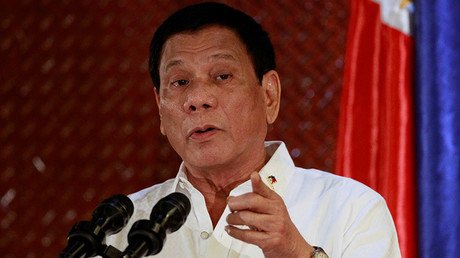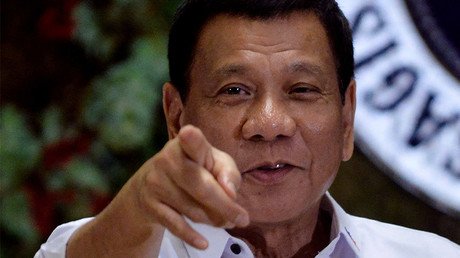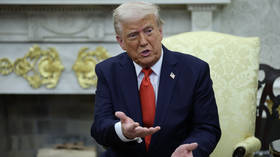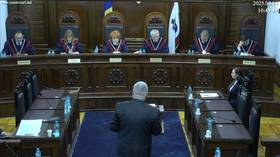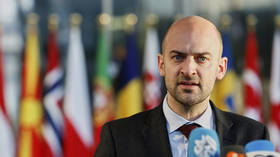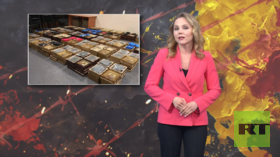Duterte govt denies report alleging most drug killings done by police
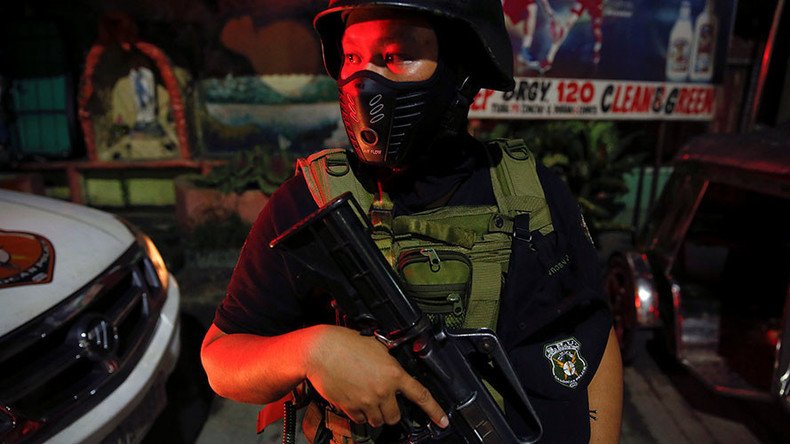
A report into the bloody ‘war on drugs’ in the Philippines said most of the thousands of people killed in the violence were police executions, not vigilante hits. The government said the sources behind it were “living [out] movie scenes.”
The 26-page report was prepared in January by a former intelligence officer, who said he interviewed 12 serving and five retired officers for it, according to the South China Morning Post. The newspaper said it reviewed a copy of the report, the existence of which was revealed on Tuesday by Reuters.
Neither outlet published the entire report, but the news agency provided its first page and said only half of it was detailing the alleged police violations and the other one accused Philippines President Rodrigo Duterte, the driving force behind the war on drugs, of ties with Communists, which has political ramifications in the country.
Reuters said the author penned the document to organize opposition to Duterte’s campaign and that some powerful institutions in the Philippines, including the Catholic Church, were given copies. One priest told the agency that he actually helped edit the report. Reuters said it also interviewed one of the officers cited by the document.
The report alleges that the Philippine National Police (PNP) are behind the majority of the estimated 9,000 killings of alleged drug criminals in the 10 months of Duterte’s presidency.
“Killing by vigilante forces is definitely non-existent. It is PNP operatives riding in tandem who carry out [extrajudicial killings],” the report said as cited by Post. “Although there are several thugs who are police assets used for [the killings], these thugs serve as collectors, informants or auxiliaries, and are provided with budgetary funds to defray their expenses.”
The police record states that over 2,600 suspects were shot dead by officers over nine months and that those killings were justified by the perpetrators allegedly resisting arrest while armed. Other deaths are attributed to vigilantes.
The report accuses the PNP of extrajudicial killings and said officers were receiving monetary rewards for them. The rewards start from $400 and up to $40,000 for killing distributors, retailers and wholesalers, the report claimed.
The PNP also routinely plants evidence at the scene, the report alleges.
“Planting of evidence is done to make it appear that the drug suspect resisted and fired back. A small quantity of shabu [crystal meth] and [a gun] are the usual ‘resistance killing’ evidence,” the report said as cited by Post.
The report offers no documentary evidence to back the accusations.
Duterte’s office rejected the allegations against the PNP.
“There is no truth in the allegation that there is a coordinated effort to kill drug suspects,” it said Thursday in a written reply to Reuters. “The so-called officers interviewed must be living movie scenes.”
It added that the PNP were “not in the business of hiring assassins” and called on the allegations to be made publicly and under oath.
Senator Leila De Lima, a critic of Duterte who led a parliamentary probe into the drug killings, indicated she believed the accusations in the report. De Lima is currently in police custody under a drug-related charge, but handwritten notes supporting the report were posted to her Facebook page.
“I’m more than morally convinced that the ongoing human carnage targeting mostly the poor is state-sponsored as incited by a bloodthirsty head of state,” she wrote.
Duterte got elected partially on a promise to extend countrywide the brutal tactics he used against drug crime while serving as mayor of Davao for 22 years. He is also well-known for his insulting remarks targeting world leaders and top institutions.
The controversial Philippines leader was voted most influential person of 2017 by readers of TIME magazine in an online poll.
